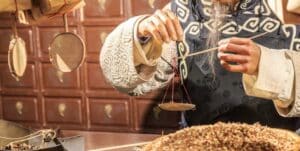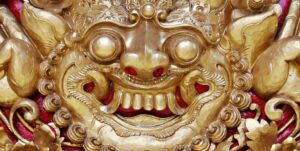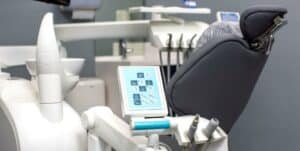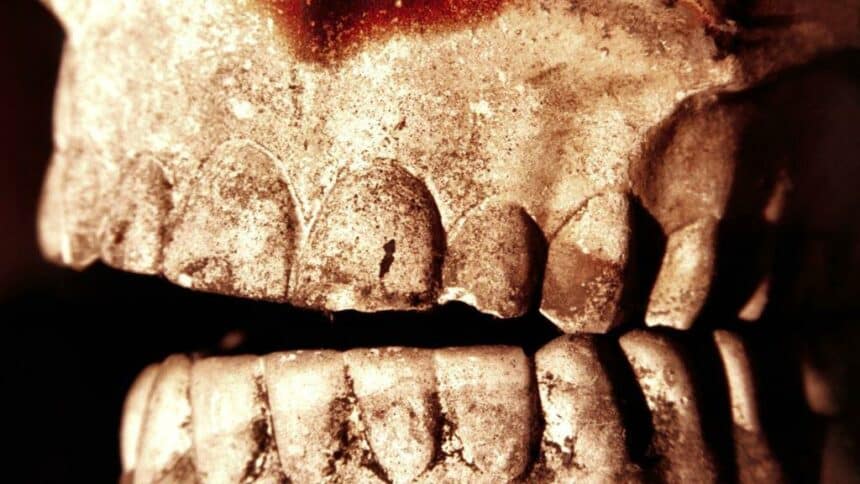Arsenic, acupuncture, a stick instead of a toothbrush and urine rinses - these are just some of the methods used to deal with toothache and oral problems. We present an article about how teeth used to be treated in different regions of the world.
How were teeth once treated in China?
Herbal rinses, massages, acupuncture and even laxatives are among the Chinese methods used to treat teeth. The first references to this appeared as early as 3700 BC.

Interestingly, Chinese scholars named and were able to recognise eight types of toothache and seven gum diseases. To treat them, they sometimes used, to put it mildly, unconventional methods. For example, if someone had a toothache, it was recommended to crush roasted garlic with the teeth and then add chopped horseradish seeds and human milk. The resulting paste had to be put into the nose, in the hole on the opposite side to the aching tooth.
Another way of relieving pain was arsenic. Small amounts of the poison were placed near the tooth. It relieved the pain, but also 'killed' adjacent tissues and even the patient.
However, the most well-known was acupuncture, in which, out of 388 points, as many as 26 are responsible for pain relief.

Hinduism and dental treatment
Information on how teeth were once treated can also be found in the Vedas, the sacred books of Hinduism. These include Ayurveda, which focused (and still focuses) on maintaining the balance of the entire organism, i.e. health. It contains texts on, among other things, oral anatomy, oral hygiene, diseases and treatment methods.
Information on prevention can also be found in the Veda Vishnu, where there is an entire chapter devoted to cleaning teeth. Hindu scholars recommended using the frayed branches of aromatic trees for this purpose. According to them, the teeth had to be cleaned every morning, with a freshly plucked branch 12 fingers long and the width of a small finger. That's not all - they also recommended using a paste prepared from honey, oil and herbs.
Interestingly, Indian 'dentists' of the time treated periodontitis, caries and removed tartar. As many as 65 oral diseases were known to them in the 6th century BC.

How teeth were once treated in Egypt and Rome
The ancient Egyptians also paid attention to oral hygiene. Like the Hindu scholars, they recommended cleaning the teeth with a jagged stick. It was necessary to spread "toothpaste" with it. And what was the composition of the toothpaste used in ancient Egypt?
It was a mixture of burnt eggshells, pumice, myrrh and powdered ox hooves. The whole thing was mixed with water. If someone, in those days, wanted to prevent infection, they should use a paste made from frankincense, cumin and onions.
The ancient Romans also used 'toothpaste'. They used crushed mouse, hare or rat brains, bones or oyster shells to prepare it. According to them, the best remedy for almost all oral problems was a rinse made from ... human urine. This was not their own urine, but was imported from various parts of the world, mainly from the regions of what is now Spain.
The Romans also took care of fresh breath. To do this, they used scented oil rinses and made use of tree bark and coal.

Antiquity vs modern dentistry
What is obvious is that how teeth used to be treated is very different from today's procedures, during which scanners or microscopes are now becoming standard. And what are they used for? You can find out in our article Teeth under the microscope, or modern technology in dentistry.
What hasn't changed, however, is the fact that if you don't take care of your teeth you have to reckon with a pain. To avoid it, it is important to maintain good oral hygiene. To do this, you should use a toothbrush and toothpaste that are tailored to your needs. But that is not all! Also very important are visits to the dentist and regular hygiene. You can find out what this consists in our material "Dental hygiene in the UK - scaling, tooth sandblasting, polishing and fluoridation".
And if you have additional questions about oral hygiene -. contact us.
IMPORTANT: Our surgery is open, However, the rules for making an appointment and the procedure during the visit itself have changed. More on this in the article „A dental visit in the UK during the coronavirus pandemic".
We also recommend you our article „Take care of your teeth during the lockdown", z which you will learn why now is a good time to take care of a beautiful and healthy smile.

